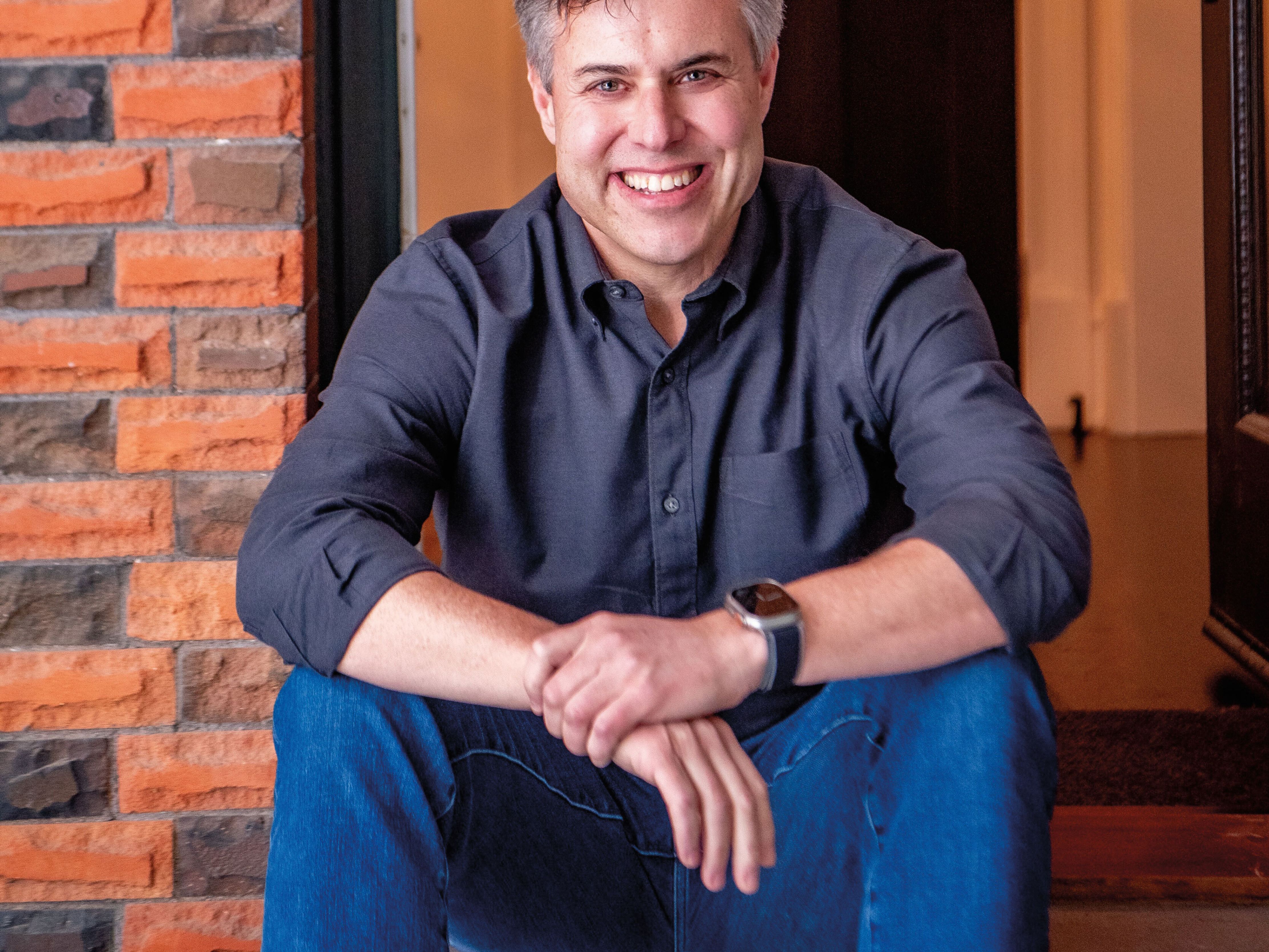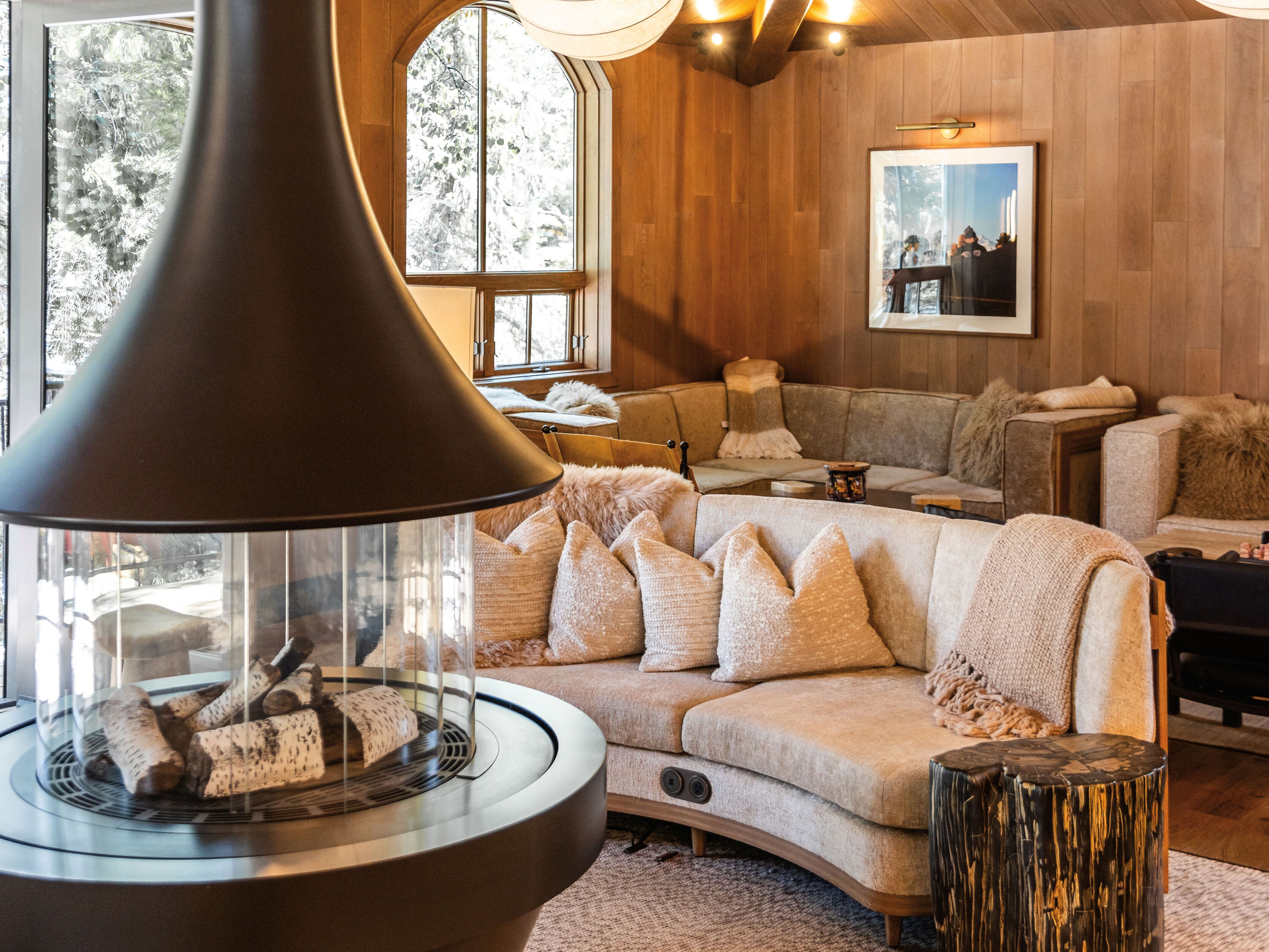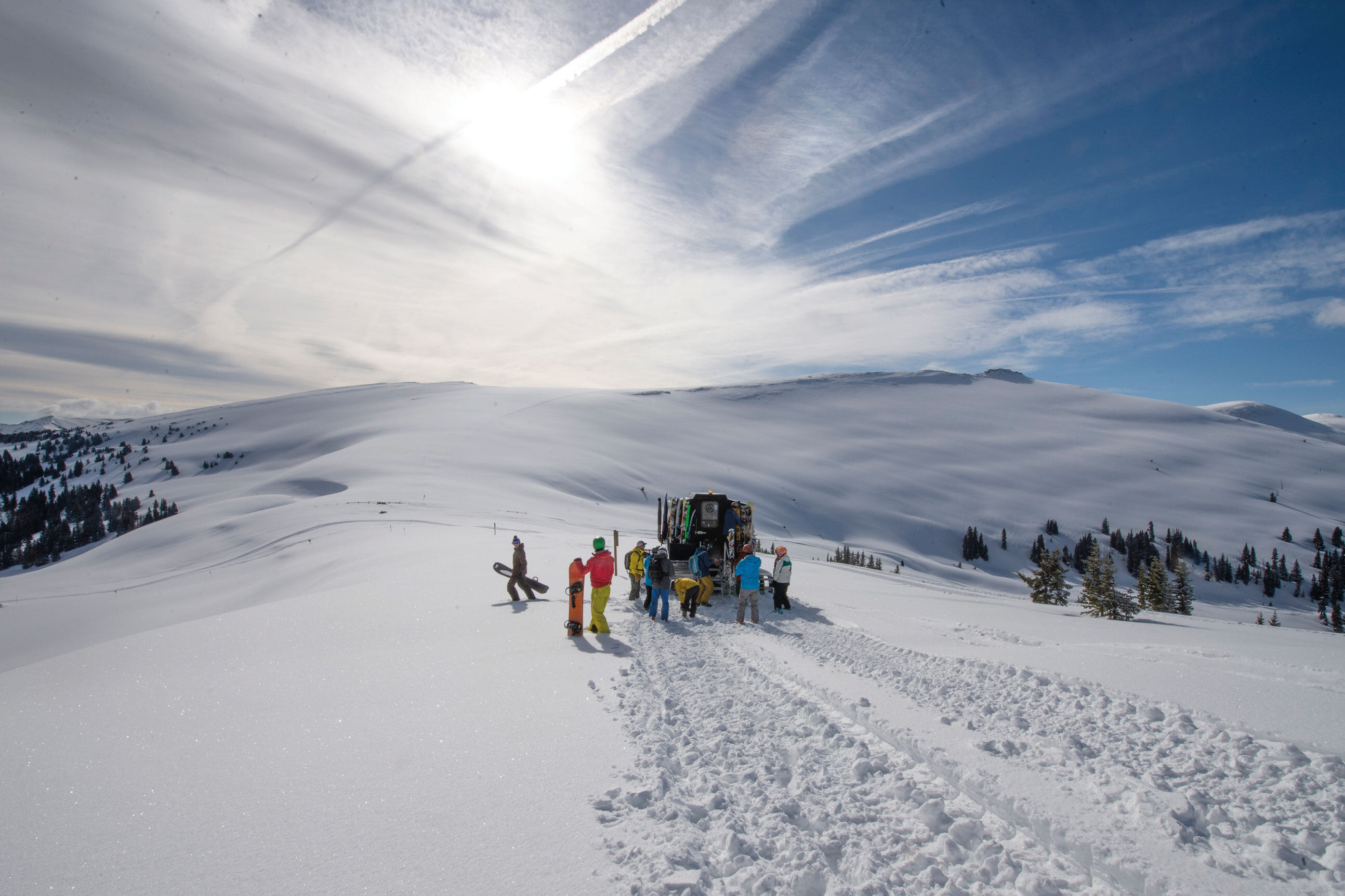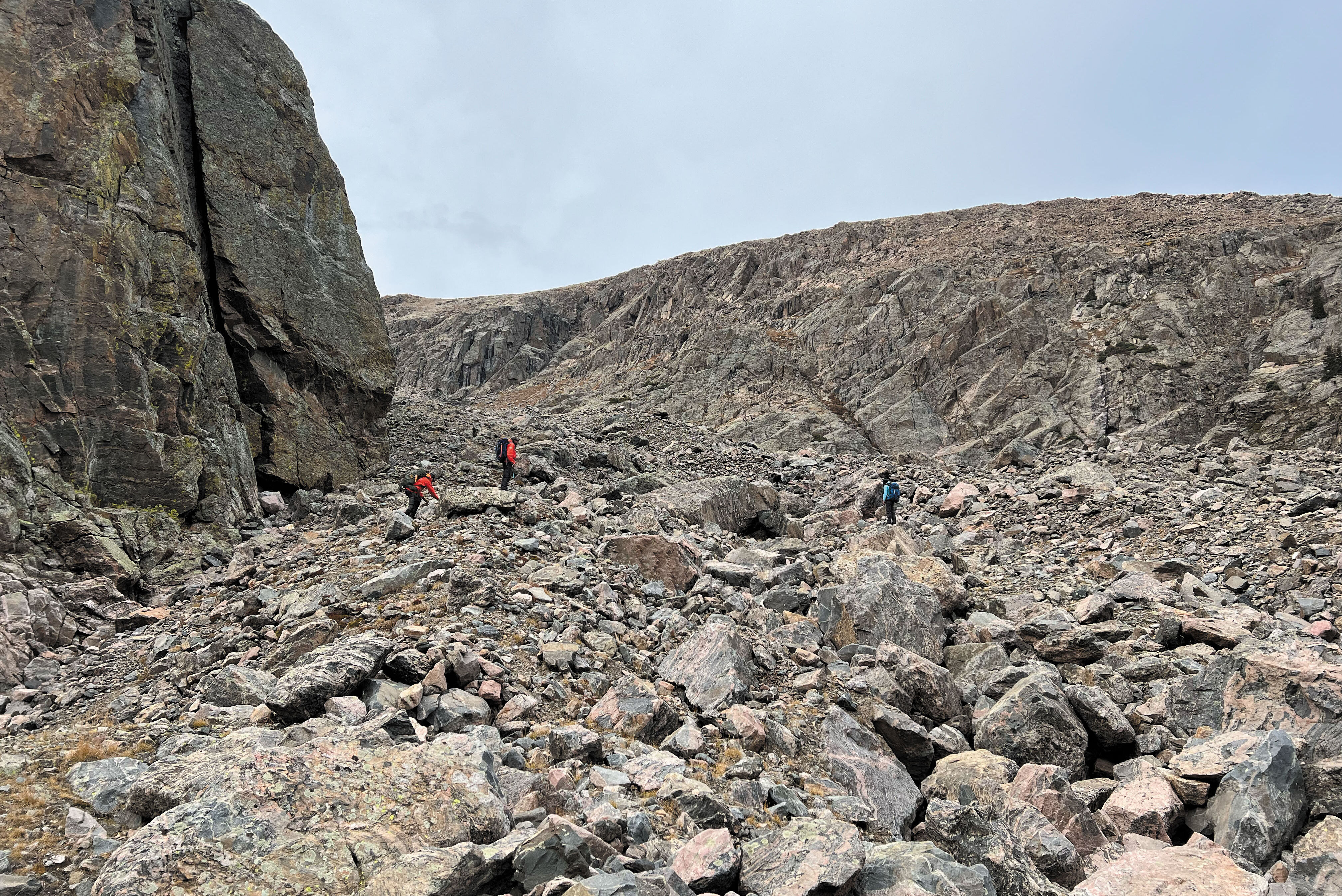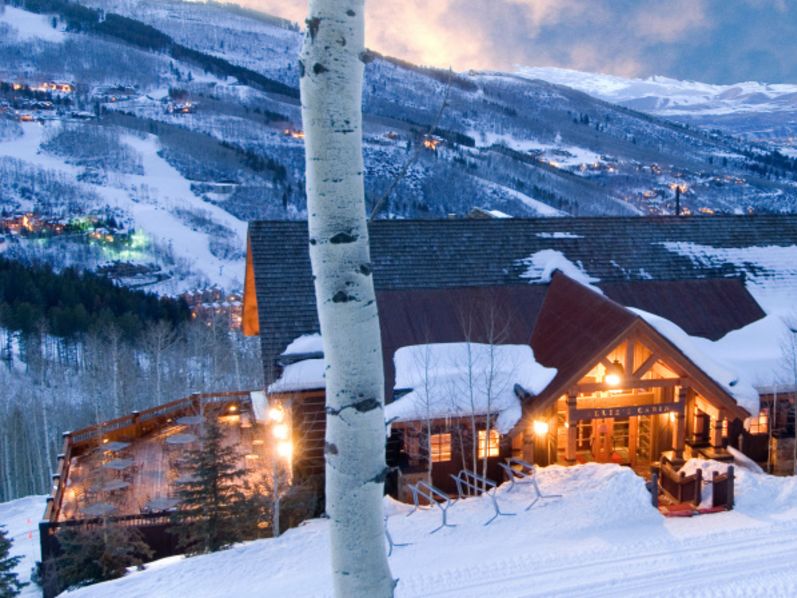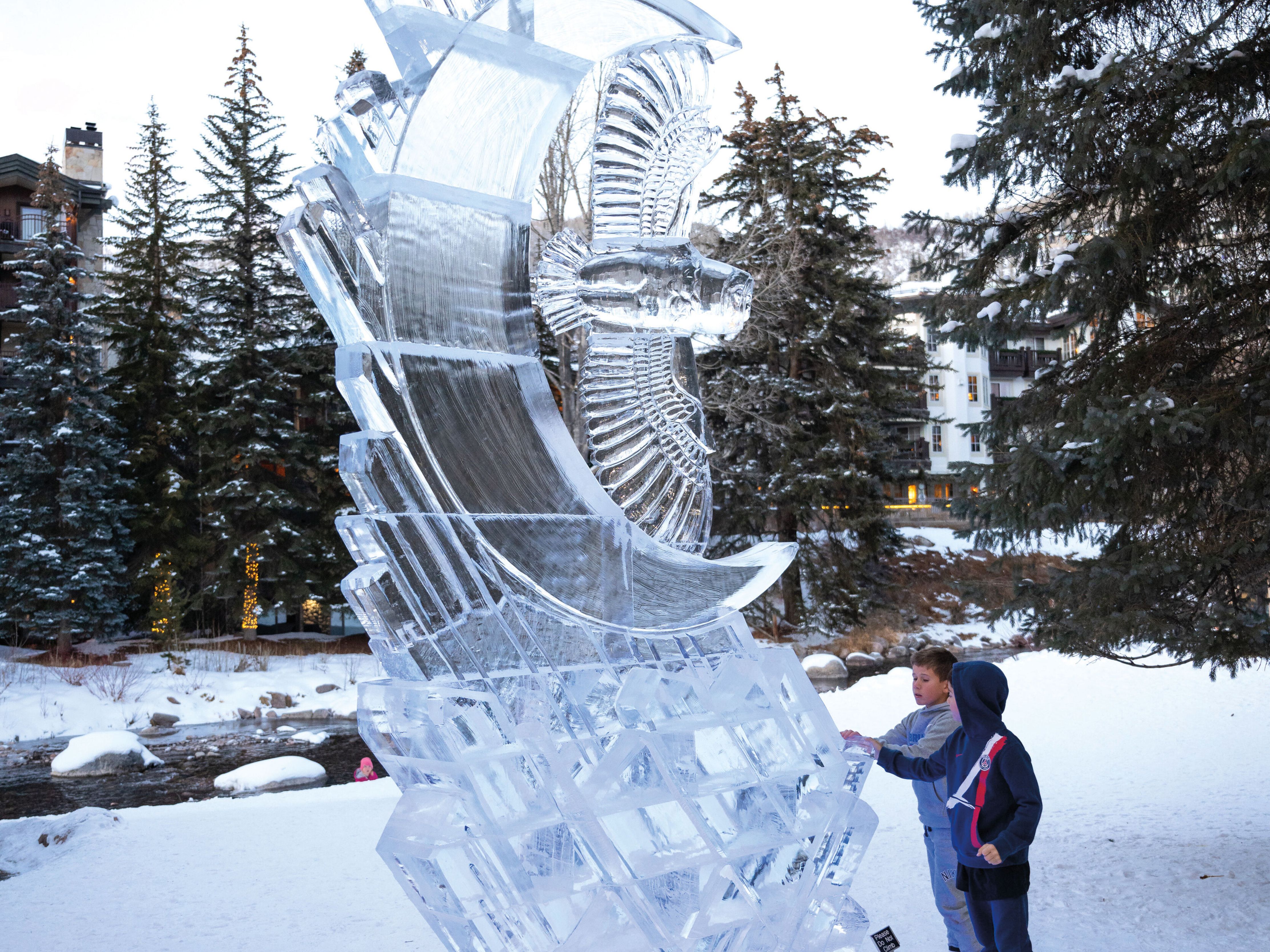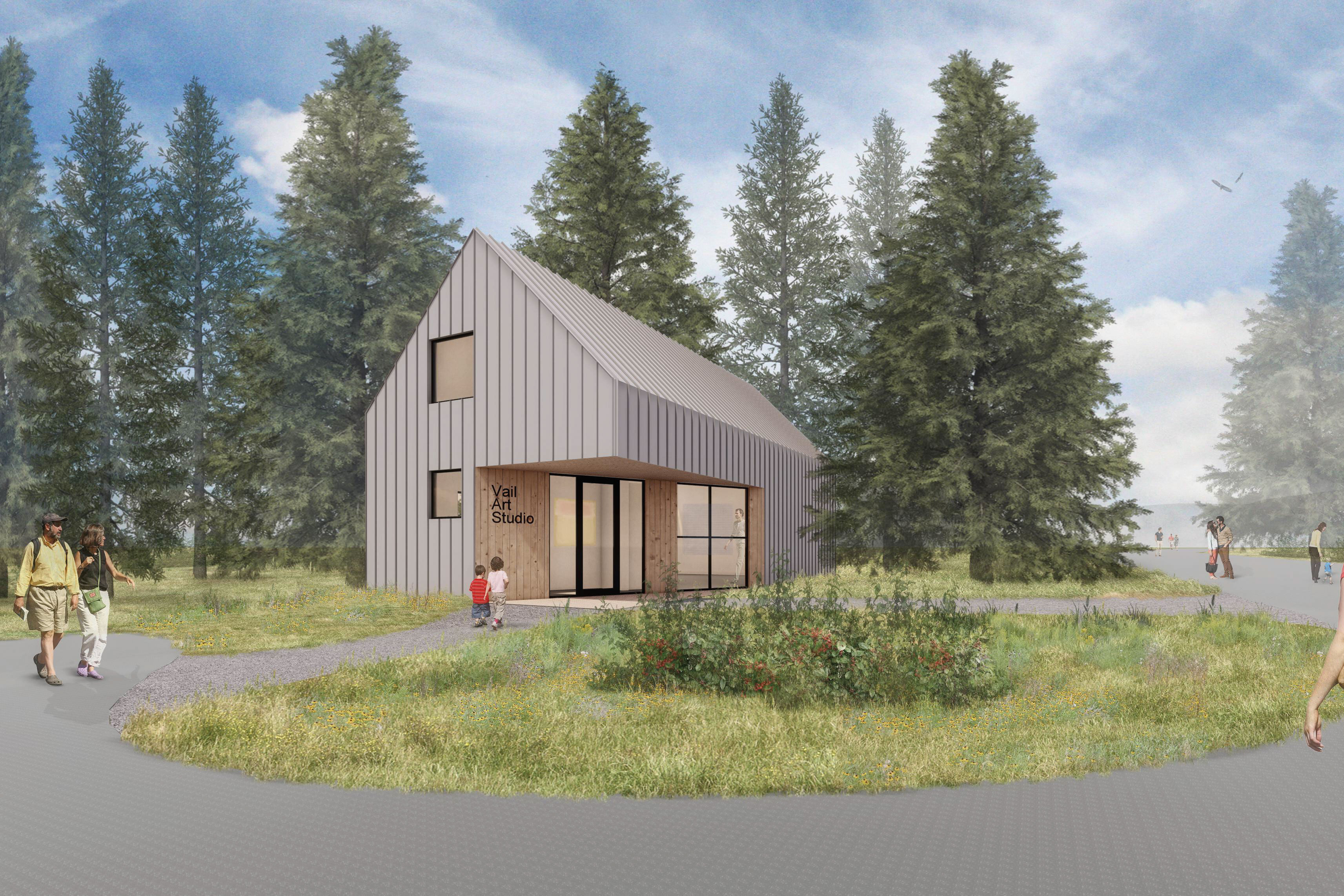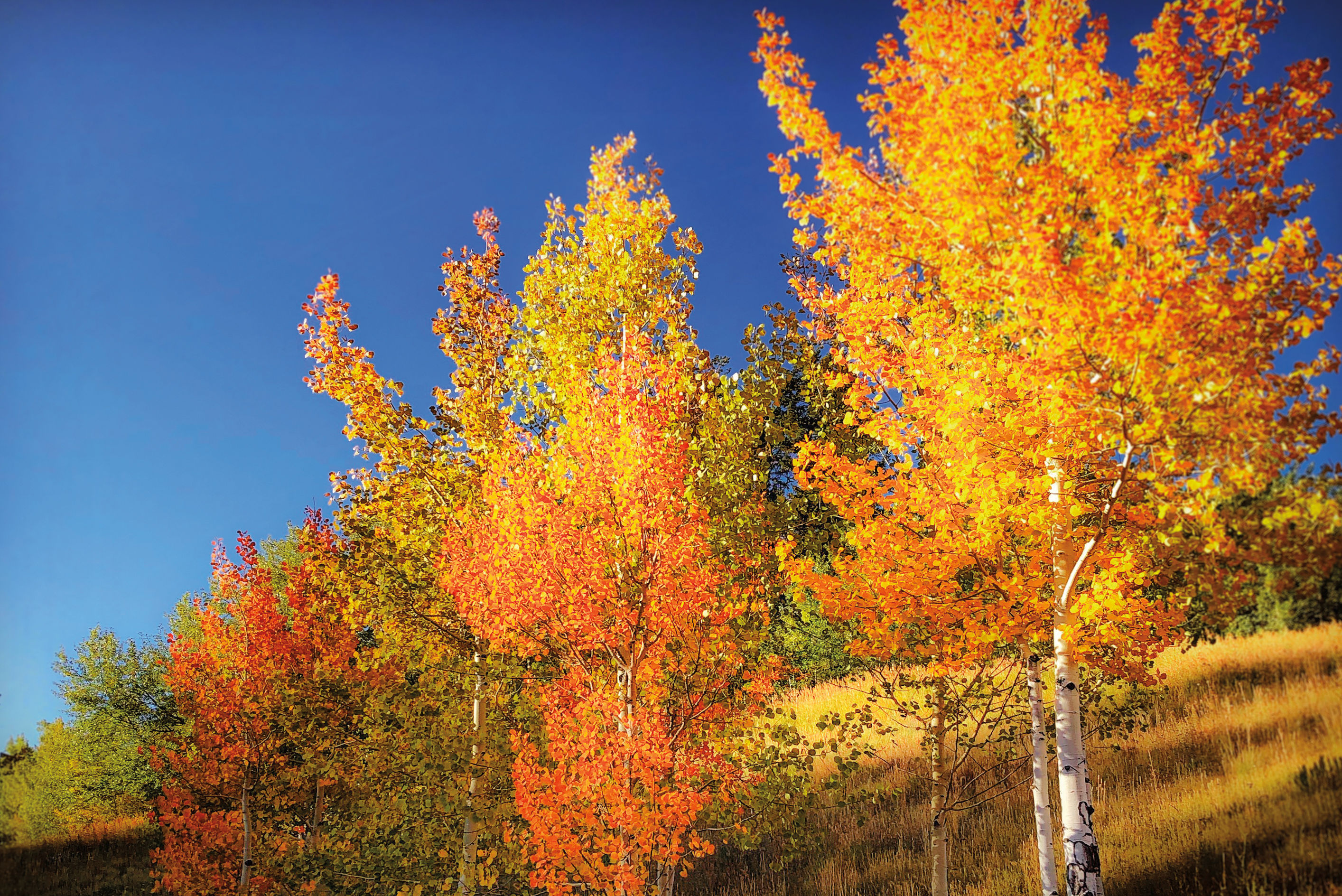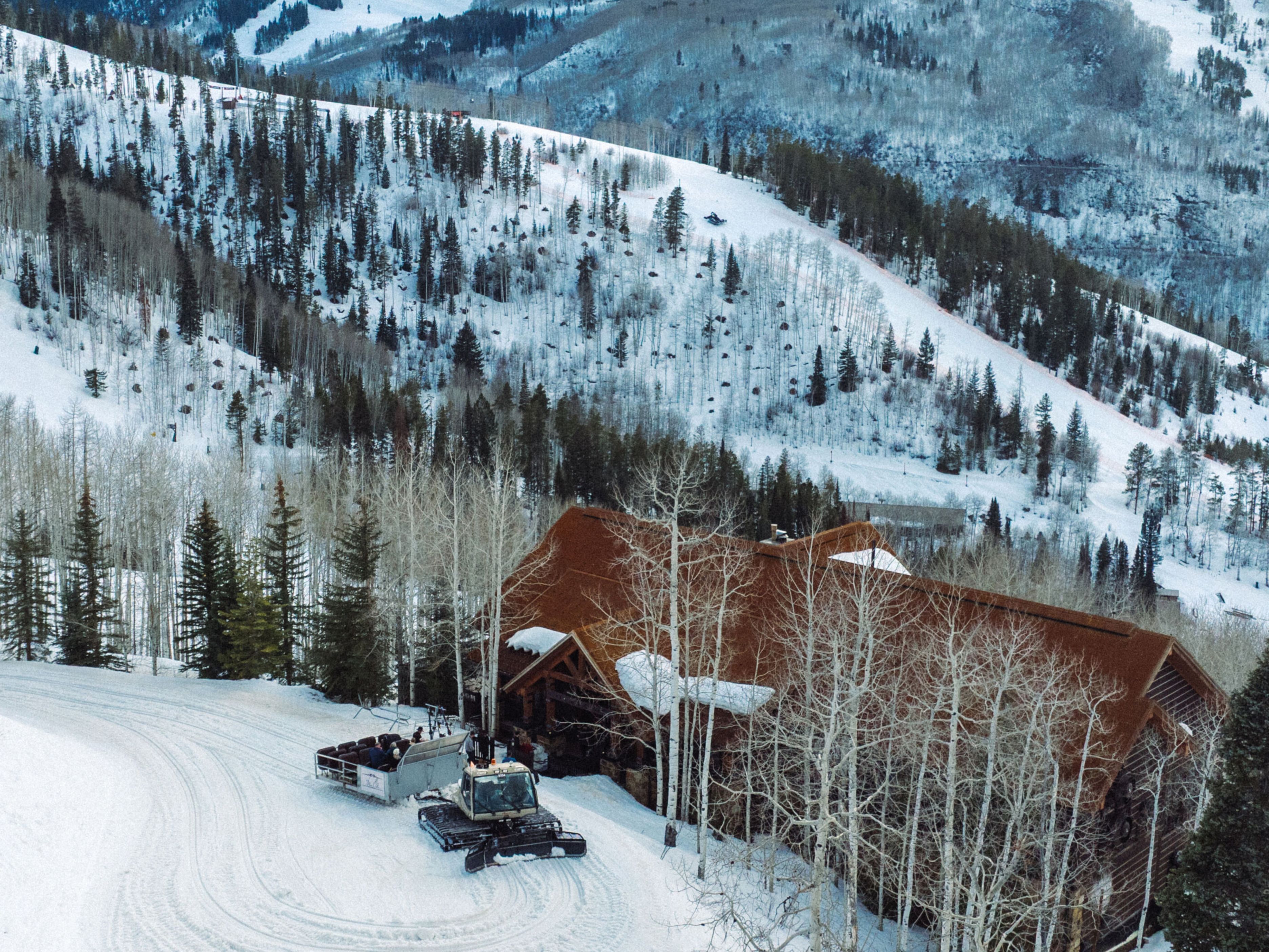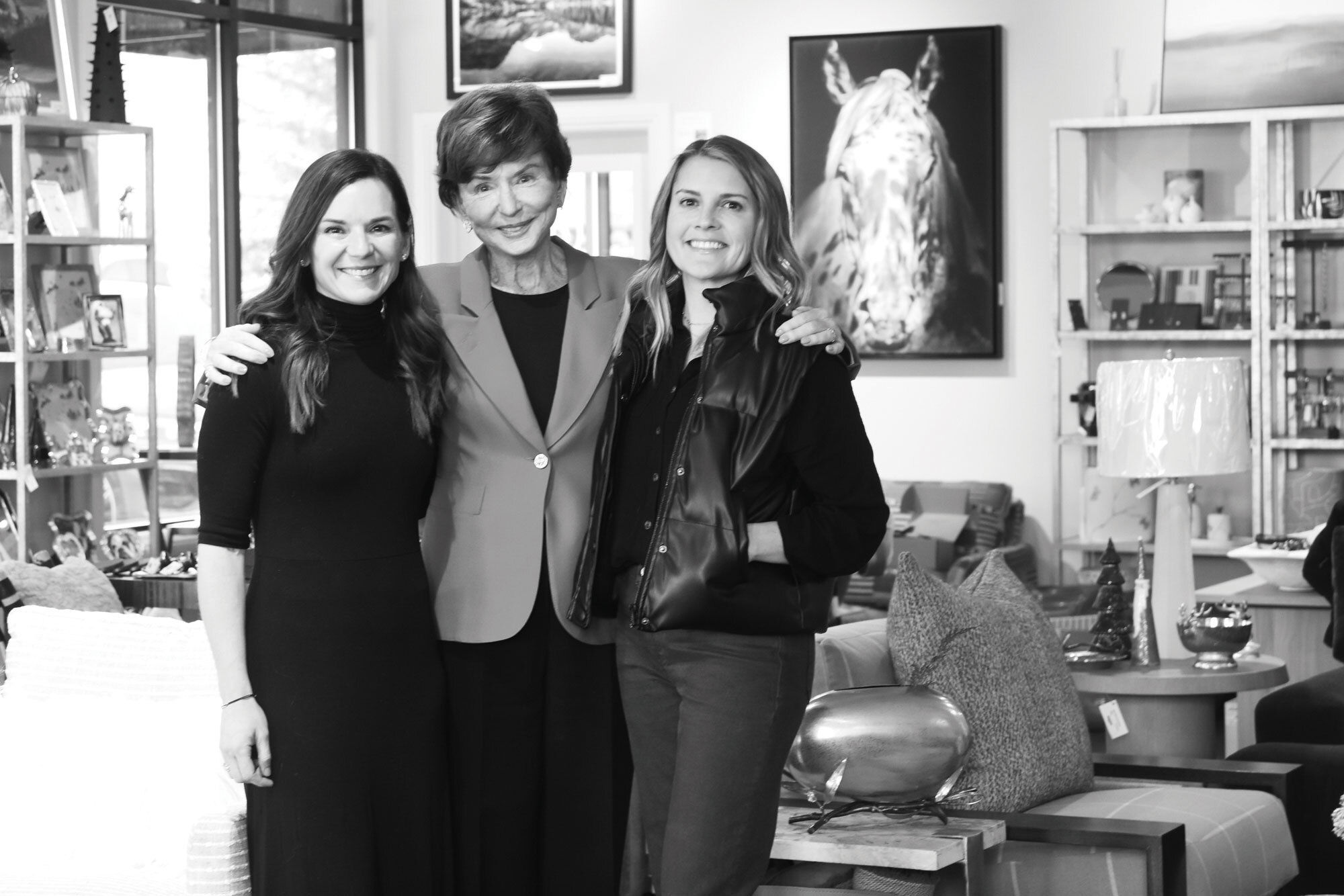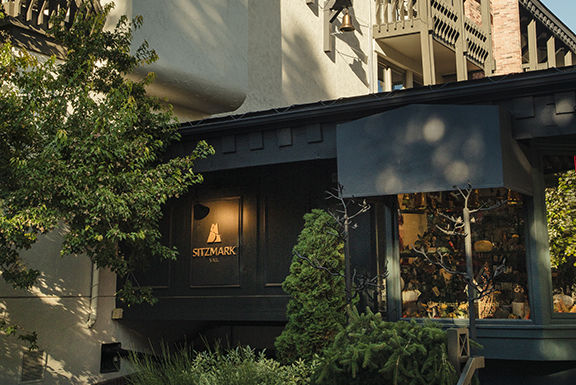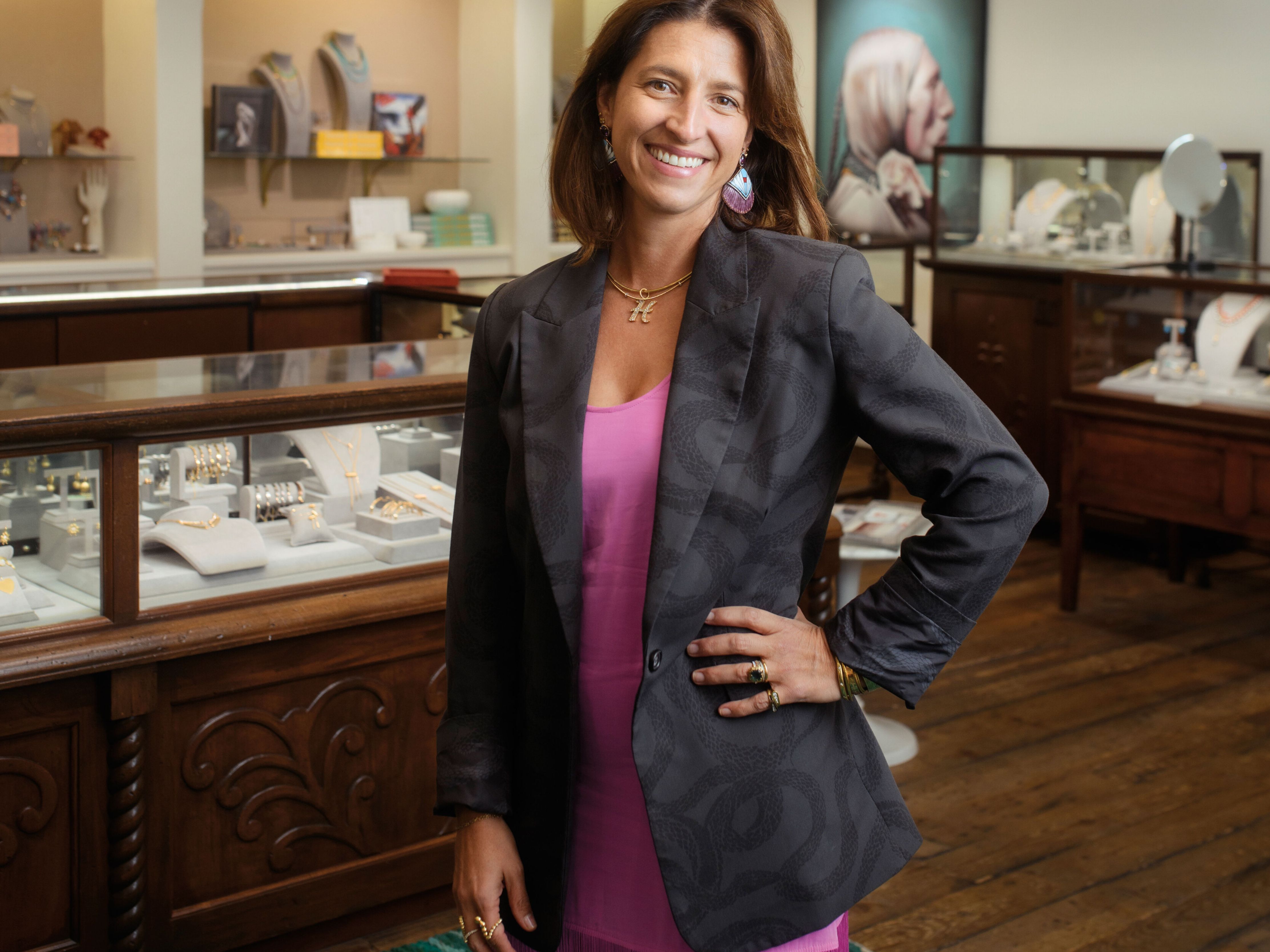Behind the Scenes at Minturn's Funky Non-Profit Radio Station
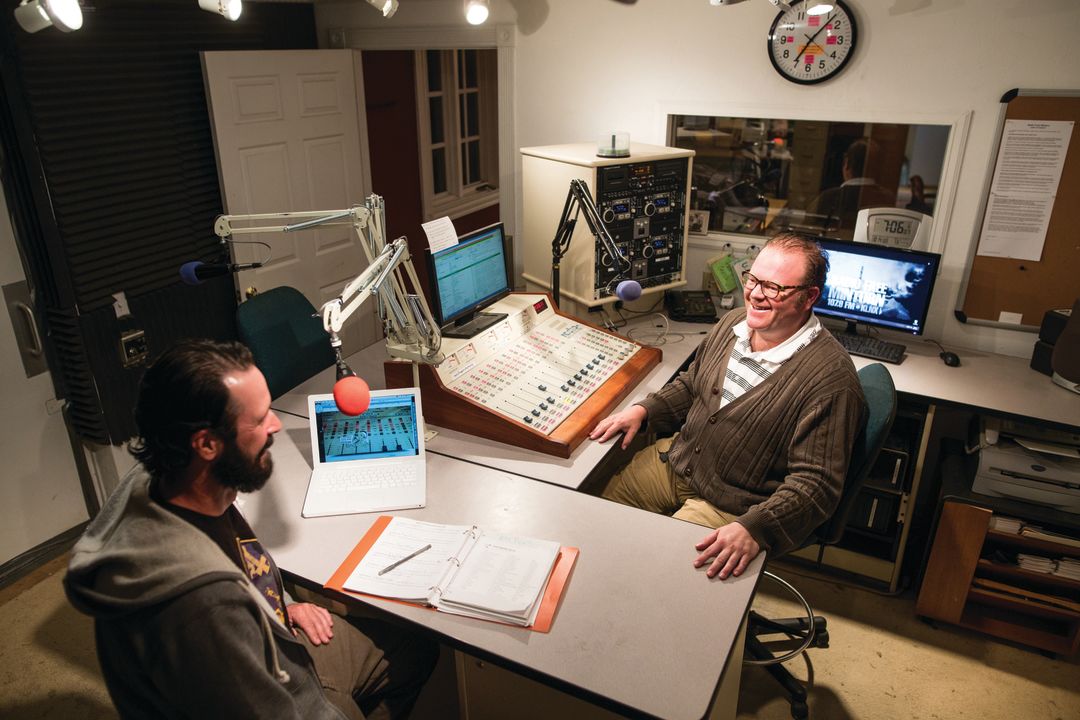
DJs Casey “Yeti” Leake and Austin “A-Train” Richardson.
Image: Zach Mahone
On a brilliant fall day in Minturn (as most of them are), Brian Duchinsky, president of Radio Free Minturn but known to listeners as DJ Greywolf, explains how he came to be a volunteer disc jockey. Duchinsky is sitting in the station’s two-room studio, just behind Magustos restaurant at the entrance to town, sporting gray stubble and wearing (what else?) a T-shirt with a gray wolf on the front.
The retired General Electric executive heard about the station from a friend and used to listen online, since its limited low-power range didn’t extend to his home in Summit County. He had never disc jockeyed, but that didn’t stop him from inquiring about getting a show. To his surprise, his request was granted.
“I couldn’t believe that they would take anybody, but they do,” he says. “We do.”
So began a second career in radio. Like everyone else at Radio Free Minturn (107.9 on your FM dial and streaming at radiofreeminturn.org), Duchinsky is a volunteer. The genre-free station started as an edgy pirate broadcast from a Minturn living room in the late ’90s before getting shut down by federal agents shortly into its tenure. “We theorized that somebody ratted on us,” says Minturn local Liz Campbell.
Undeterred, a small group of passionate backers led by Campbell raised $40,000 to secure an FCC license and relaunch as a public nonprofit station in 2006. Nine years later, KLNX (named after the lynx, not Kleenex) espouses the same ideals it did back then, chief among them: freedom of expression in a small, independent ski town that happens to sit between two of the premier luxury resorts in the world.
“Every time I run into someone around the valley and tell them I’m involved with Radio Free Minturn, they’re always grateful we’re providing music that’s not the same commercial stuff you hear everywhere,” says longtime DJ Casey “Yeti” Leake.
KLNX runs on an annual budget of between $15,000 and $20,000, most of which comes from donations; rents part of someone else’s antenna to transmit; and benefits from in-kind services—for example, carpet cleaning and accounting—from businesses that support its commercial-free programming. It attracts an eclectic crew among its 25 DJs; former president Dave Eickholt cites a pair of tent dwellers, one of whom was “unreachable except by leaving notes at the station for him.” All are united by a passion for music.
Prospective Johnny Fevers (or Les Nessmans) interested in joining the ranks can usually e-mail the station with an idea for a show, do a couple hours of training, and within a week or two be on the air. The expectations are, well, fair. As Duchinsky says, “You think—you hope—there’s people listening out there, and you don’t want to screw it up.”

